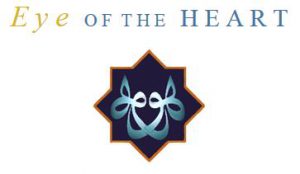
THRESHOLD SOCIETY NEWSLETTER ~ DEC 2017
***
Blessed Maryam
Shaikha Camille reflects on Beloved Mary, Mother of Jesus,
and how the early Muslims found refuge in a Christian kingdom.
Blessed Maryami
Excerpt from Songs of the Soul
by Camille Hamilton Adams Helminski
A young woman,
betrothed to be married,
yet devoted,
still,
within the inner sanctuary
of the temple,
saw what seemed to be a man, suddenly,
within her chamber.
Quickly,
she sought refuge
with her Lord
from this apparent
intruder.
What was he doing here,
where no man should enter
except her cousin Zachariah,
who attended her
so dearly?
Radiant with beauty, unearthly
handsomeness,
he, quickly,
sought to dispel
her fears;
and smiling he told her,
“Blessed are you among women.”ii
“I am but the servant
of your Lord.
I bring you good news—
of a son.”iii
Startled,
she questioned,
“How can I have a son,
when no man has touched me
and I am not unchaste?”iv
“Even so,
for your Lord it is easy.
Your Sustainer says:
He shall be a symbol
for humankind
and an act of Grace
from Us.”v
And surely,
a child
quickened
in her womb;
a son most pure
came to her bosom,
in nine months’ time
growing within her,
as with all mothers
birthed with travail,
and far deeper,
wringing her heart.
Yet, stars around her head, hovering,
covered her shoulders;
a stream emerged
from beneath a palm,
and dates cascaded
to feed her.vi
All of nature
rose up
in support—
birds sang
and shepherds
played their flutes,
guiding flocks
to witness
a new arrival,
a Word of Spirit
made flesh.vii
Far distant
stars journeyed
on camels,
the Wise arrived
bearing gifts.viii
And to a doubtful
community
an infant spoke,
from deepest heart:
“I am the servant
of my Lord.”
And blessed is he
the day he is born
and the day he returnsix —
Everlasting
to Everlasting—
and never is the Word
of God
lost or changedx —
intrinsic in purity—
That One Alone
knows our Name
and assists us all
in finding
our meaning
alive
with Him/Her,
The Creator of All Being,
Sustainer of All Worlds.xi
________________________________________________
i Mother of Jesus (Isa, son of Mary): May abundant blessings be upon, around, and through them both, graces flowing to our world.
ii The Bible, Luke 1:28; Quran, Surah al ‘Imran (The House of ‘Imran), 3:42
iii The Bible, Luke 1:29-31; Quran, Surah Maryam (Mary), 19:17
iv The Bible, Luke 1:34; Quran, Surah Maryam, 19:20; Surah al ‘Imran, 3:47
v Quran, Surah Maryam, 19:17-21
vi Quran, Surah Maryam, 19:23-26
vii The Bible, John 1:14; Quran, Surah al ‘Imran, 3:45
The First Refuge (Under the blessing of Blessed Maryam)
In the early days of Islam, the Quraysh, Muhammad’s own tribe, and others among the powerful polytheist tribes of Mecca, persecuted the Muslims, limiting their freedom of worship and movement for livelihood. After some time, the Prophet gave his permission to Jafar ibn Abi Talib, brother of Ali, for some of the Muslims to emigrate with him to seek refuge with the Christians of Abyssinia. Jafar and his wife, Asma bint Umays, were among the first Meccans to accept Islam and were deeply devoted in faith. The Negus, the just Christian ruler of Abyssinia, welcomed them, and at last these devout Muslims were able to live and worship undisturbed.
It wasn’t long, however, before the Quraysh learned of the peaceful asylum they had found and sent two emissaries with sumptuous gifts to seek their extradition. They sought the agreement of the bishops and the Negus, himself. He said, “No. By God, I won’t surrender them to anyone until I, myself, ask them about what they have been accused.”
He questioned them. In his melodious voice, Jafar recited from the Quran Surah Maryam, which relates the story of Mary and the birth of Jesus. The Negus was moved to tears. When questioned further, Jafar told him of what the Prophet said of Jesus: “Our Prophet says that Jesus is the servant of God, and His Prophet; he is His Spirit and His Word which He breathed into Mary, the blessed Virgin.”
The Negus drew a line across the sand and said, “The difference between your faith and ours is no more than that.” He returned the gifts to the emissaries and gave the Muslims continued refuge and protection.
viii The Bible, Matthew 2:1, 2:9-11
ix Quran, Surah Maryam, 19:30-33
x Quran, Surah al Kahf (The Cave), 18:27
xi Quran, Surah Yunus (Jonah), 10:10
***
Reflection on November’s theme:
Be kind, for when kindness is part of something it beautifies it;
and when it is removed, it tarnishes it. ~Hadith
~ Fatimah Ashrif [Hale Barns, UK]
 On the Sufi path, adab (courteous etiquette) is of central importance and I feel kindness is perhaps the appropriate adab to apply in the setting of spiritual community, family and wider community. To remember to be moved by kindness would surely be very helpful in such relationships.
On the Sufi path, adab (courteous etiquette) is of central importance and I feel kindness is perhaps the appropriate adab to apply in the setting of spiritual community, family and wider community. To remember to be moved by kindness would surely be very helpful in such relationships.
I am familiar with the idea that beautiful actions and intentions adorn our physical being as well as other less visible aspects of our being. People have often spoken about a person’s warmth and generosity making that person attractive to them (beautifing them) and a person’s coldness or miserliness making that person unattractive to them (tarnishing them).
The theme here is also referring to a deeper beautifying. The type that takes place at a deep level within us: seeds which are sewn in our spiritual heart and nurtured within us by our kind thoughts, words and actions and which if our kindness flows, sprout and grow, and spring into bud and then flower into beautiful roses. I often think of my good thoughts, words, and deeds, and indeed other forms of spiritual practice, as nourishing and beautifying my inner being which I imagine as beautiful flowers or trees. Perhaps this is inspired by the references to Jannat in the Quran. This is often translated as simply “heaven” or “paradise” but when one looks more closely at the root of the word in Arabic, one finds the meaning of a “garden within a courtyard” and it gives rise to images of inner ornate courtyards such as those one might find in the Alhambra with flowing fountains and exquisite plants, flowers and trees.
Kindness to others may not always be easy for us. Perhaps because we are not used to receiving it, recognising it or showing it. Perhaps because we find the words and behaviours of others challenging in some way, or due to the challenges we have experienced in our own lives which may have hurt us, we may be prevented from connecting with others. My personal sense is that in showing kindness to others, we offer a form of healing to them and ourselves. I have found acting with kindness to be incredibly self-healing and to result in a healthy sense of self-love also. In showing kindness to ourselves we also heal ourselves. From healing comes a wholeness that is of course beautiful.
Recently I found myself recognising a need in myself to be seen, acknowledged and accepted for who and what I am. As I was voicing this to myself, I found myself also asking, “How well do you see yourself for who you really are? Do you see your beauty and goodness? Do you accept yourself?” I have a habit of seeing mostly my shortcomings, the places I fail and fall. On the spiritual path where we are invited to be self-reflective and see those parts of ourselves which might need some refinement, it is possible that those of us who have a strong inner critical voice might end up focussing unfairly on what seems negative to us about ourselves rather than that which is positive.
This may be the case, even if at some level, it is clear to us that in the end even the darkness within us is in service to the light and what we see as negative qualities are often linked to a desire in us simply to be loved. These apparent negativities can be transformed, transmuted into gold. Therefore to show warmth, friendliness, generosity and compassion to our own selves – seeing ourselves fully – might well enhance the growth of our inner garden… when we touch others with kindness, the tree within us grows an inch higher and the roses within them also unfold further. I am reminded of some of my most favourite lines from Mevlana,
That which God said to the rose,
and caused it to laugh in full-blown beauty,
He said to my heart,
and made it a hundred times more beautiful.[Mathnawi III, 4129]
I recall a dear friend telling me once that the love that we receive from others is God’s love. It is God’s love meeting us through these others. The kind words we whisper to each other and kind acts we exchange are God’s love working through us…creating beauty, wholeness, healing in our world.
Fatimah is a Mevlevi dervish living in Cheshire and facilitates a monthly Threshold circle. She is a founding member of Rumi’s Circle, and also works as an advisor to various charitable trusts in relation to their philanthropic giving, and for the University of Cambridge on their Coexist House project.
***
December Theme
God’s Mercy is water; it flows to the lowest.
Become humble earth to be embraced by the Merciful.
~Mevlana
We welcome your reflections on this theme.
***
End of the Year Fundraising Appeal
Threshold Society supports ongoing spiritual learning communities in seven countries, as well as offering podcasts and an internet presence-all without charge. Our Shaikh and Shaikha, as well as other key members, donate countless hours to serving this community. Help us to continue and possibly expand our service by donating to Threshold.
Read our latest fundraising letter, US or UK, or simply donate here.
***
Ninety-Names of the Beloved:
Intimations of the Beauty and Power of the Divine
by Camille Hamilton Adams Helminski
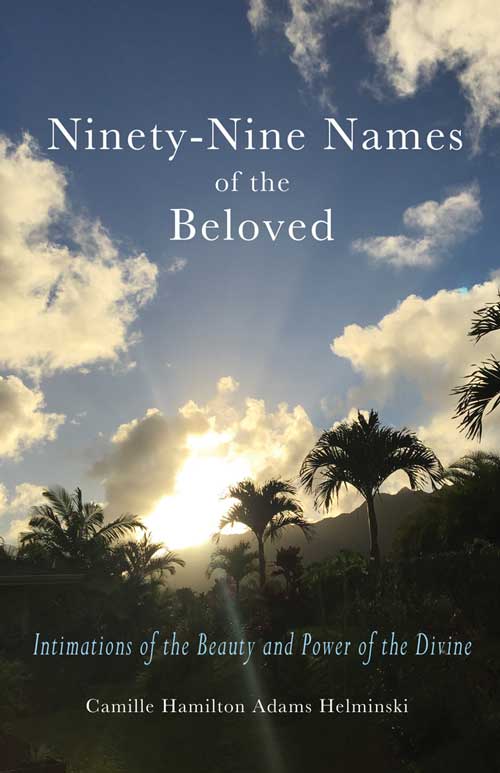
Introduction by Michael Wolfe
Author of One Thousand Roads to Mecca
Try as you might to put a face on Him (or Her or It), the expansiveness of the whole proposition of a Creator of the Universe exceeds any image you may draw. Yet Islam encourages the pleasures of contemplation. For people who reflect, this possibility of thinking about God is fruitfully facilitated by a spiritual lexicon of modifiers called the “Ninety-Nine Beautiful Names,” which, like tangents drawn around a perfect circle, reveal its outline, even while the Circle of the Divine remains unseen.
The Ninety-Nine Beautiful Names of God are attributes of the invisible Bestower. They are the qualities embodied by God, the discernable ways in which He interacts with His Creation. The two best-known of these attributes, the ones invoked at the start of every chapter of the Quran, are The Merciful and The Compassionate. When you experience Mercy, you are experiencing God. When you experience Compassion, you are in the embrace of The Compassionate One.
The Ninety-Nine Beautiful Names are a favorite theme in the art of Arabic calligraphy. They hang on walls in Muslim homes around the world. They are worked into carpets and writ large in tiles on the towering walls of impressive mosques. They are pondered and repeated while praying or walking, driving or flying. They are told on beads the way Catholics tell their rosaries, as a means to draw nearer to the Unknowable, and as a means of self-transformation.
The book before you is a meditation on these attributes, not incised in plaster, fired on tile or told on beads, but inscribed in words on paper, in flows of poetry. Francis of Assisi, it is said, after some months spent among the Muslims of Egypt, was inspired by these Names to translate and concentrate their meanings into a Christian prayer of praise, which he set down in medieval Latin. The following pages arise from their own unique occasion.
These are praise poems—unhesitant, pure, reminiscent in places of the Welsh-English metaphysical poets Henry Vaughan and George Herbert, as when Herbert says, “There is a sweetness in love, ready-penned, write that.” Here the poet’s faith is the starting point for a surprisingly wide-ranging inspiration, drawing the Ninety-Nine Eternal Qualities into a contemporary context without ever debasing them.
When, for example, “You, the All Hearing” (As-Sami) is evoked, the poem begins,
Ah, the moon is full.
No wonder I can’t sleep
and pulls the poet outdoors into a full moon night of chorusing cicadas. A few lines later the same poem easily makes room for
This week I learned
it really matters
who tunes your piano.
Its roving lines reach into modern life, but they are also ready to draw larger conclusions. From piano strings, the poem moves swiftly to the overtones that linger “of our lives”:
What are we telling ourselves?
Here candor is at the service of a larger project. Soon enough we are being asked to,
Realign our voices . . .
into praise,
These poems are inspired by a deep contemplation of Divine attributes, bright as sparks struck off flint, in Camille Hamilton Adams Helminski’s blazing encounter with the Ninety-Nine Names of the Beloved.
PAPERBACK NOW AVAILABLE ON AMAZON USA & UK
***
Sacred Practice
Sufi Practice with Shaikh Kabir at the Festival of Faiths in Lousiville, May 2016
***
Rumi’s Urs
Dec 15 & 17 UK Celebrations

Rumi’s Circle with Mevlevi whirling dervishes from The Threshold Society are pleased to announce the 2017 celebration of Mevlana Rumi’s Urs, the anniversary of his union with the Beloved.
Join us for an evening of remembrance with zhikr, poetry, music, and whirling. We will be sharing poetry on the theme of “Spiritual Thirst”.
Friday 15th Dec: Delius Arts & Cultural Centre, 29 Great Horton Rd, Bradford BD7 1AA
Doors open at 7pm, we begin promptly at 7.30pm.
Sunday 17th Dec: St Ethelburga’s Centre, 78 Bishopsgate, London EC2N 4AG
Doors open at 7pm, we begin promptly at 7.30pm.
***
Hope & Beauty, The Path of Mevlana
Annual West Coast Retreat, February 23-25 2018
With Kabir & Camille Helminski, and special guests including
Dr. Amina Wadud, internationally respected author,
and Sufi musicians Amir & Nasreen Etmenazade.
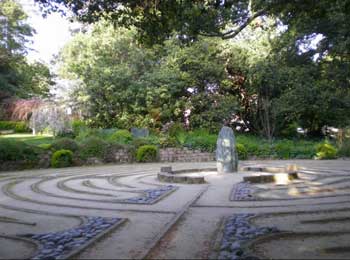
Join us for these days of spiritual practice, music, poetry, conversation, and friendship.
The Mercy Center, Burlingame, California (a few miles from San Francisco Airport)
In these times when we are constantly bombarded by news of terrorism, immigration, and war, when most of the news about Islam is negative and distorted, let us remember the timeless, energizing wisdom of the Path of Mevlana.
***

Threshold’s collaborative blog channel The Living Tradition on Patheos.com is reaching new audiences and sharing the experiences of our community in a unique and vibrant way.
Let us know what you think by commenting on the posts — join the discussion at www.patheos.com/blogs/livingtradition and “follow” The Living Tradition.
Recent articles:
Muhammad and Rumi on Sexual Harassment by Kabir Helminski
***
Recent Publications
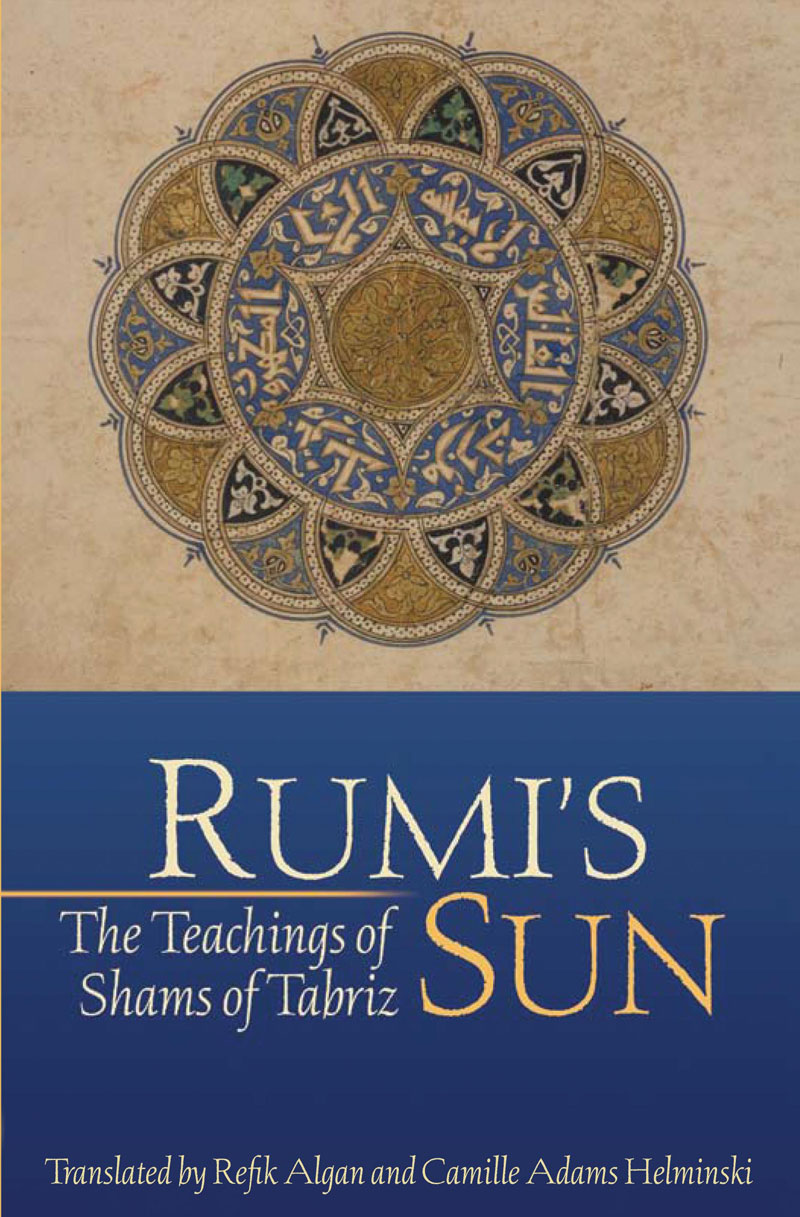
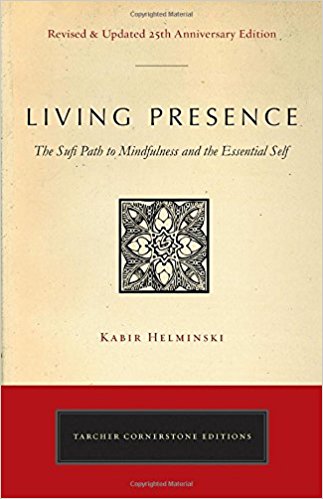
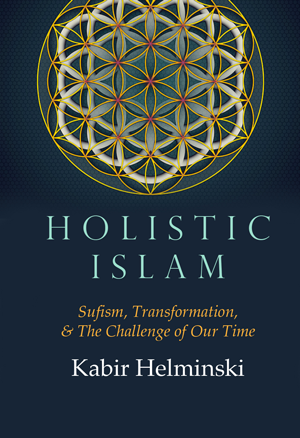
We encourage you to leave reviews on Amazon.
***
Calendar
Dec 15 & 17: Bradford & London, UK. Rumi’s Urs celebrations. More details at rumiscircle.com
Feb 23-25: California, US. Annual San Francisco retreat. Hope & Beauty: book now. (KC)
Events with Sh. Kabir and Sh. Camille marked (KC)
***
November in Kendal
Sacred Pattern Retreat with Shaikh Kabir, Beth Hin, and friends
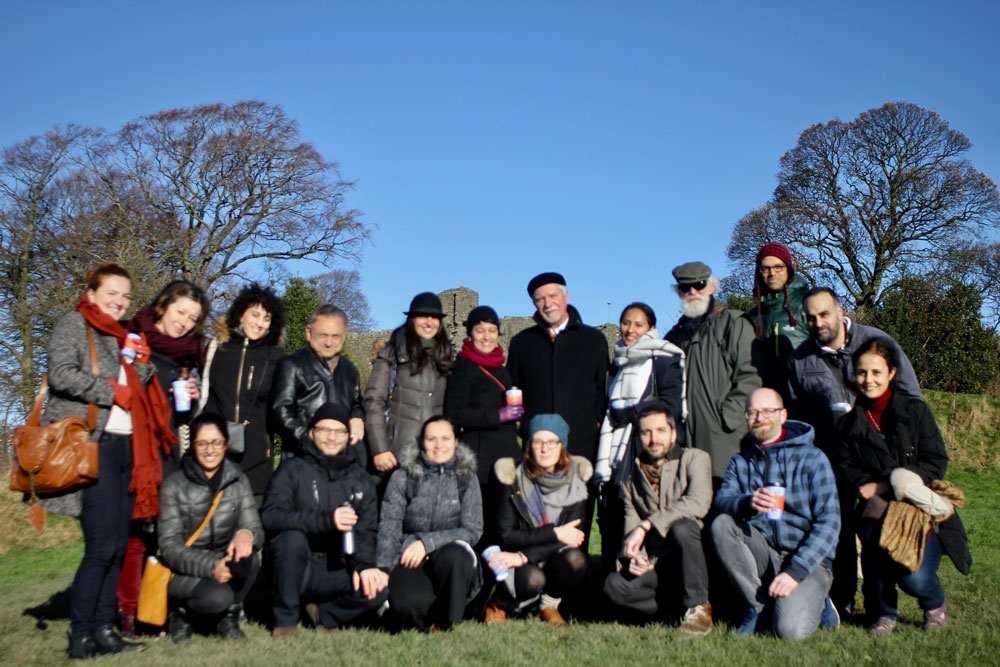
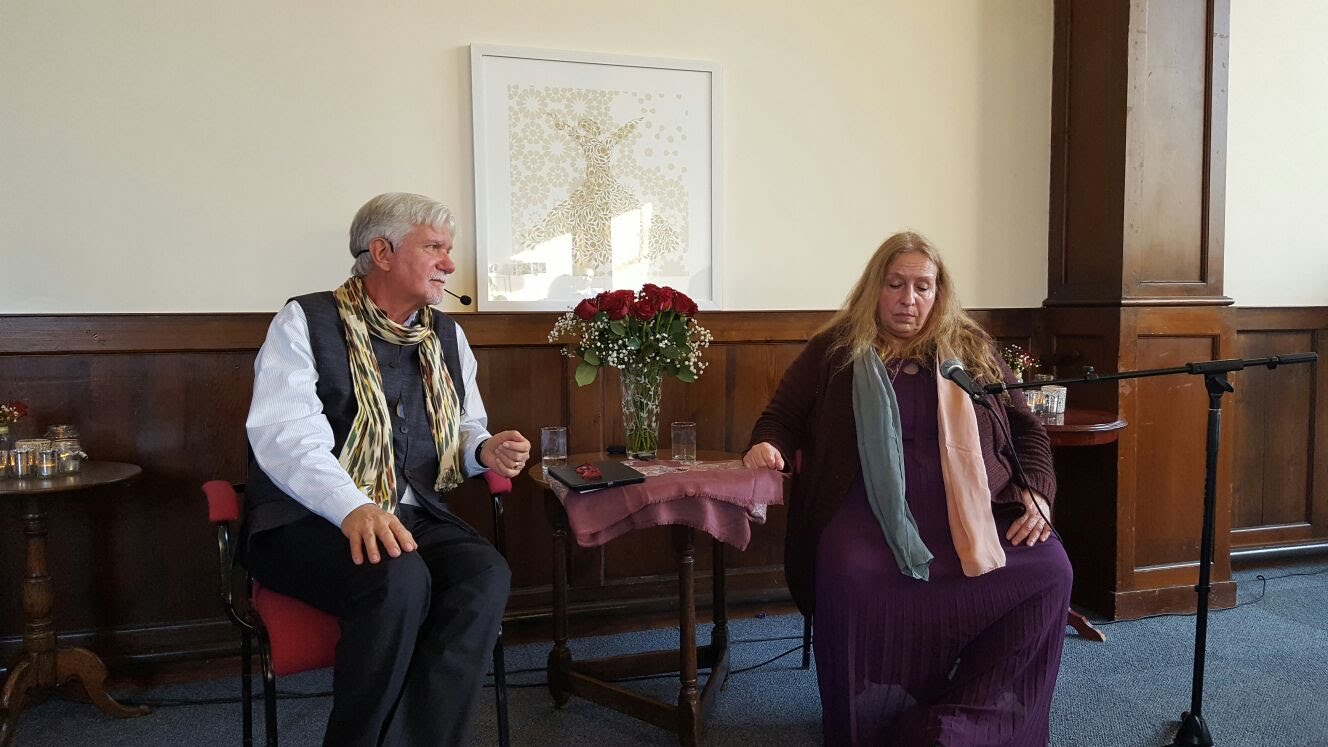
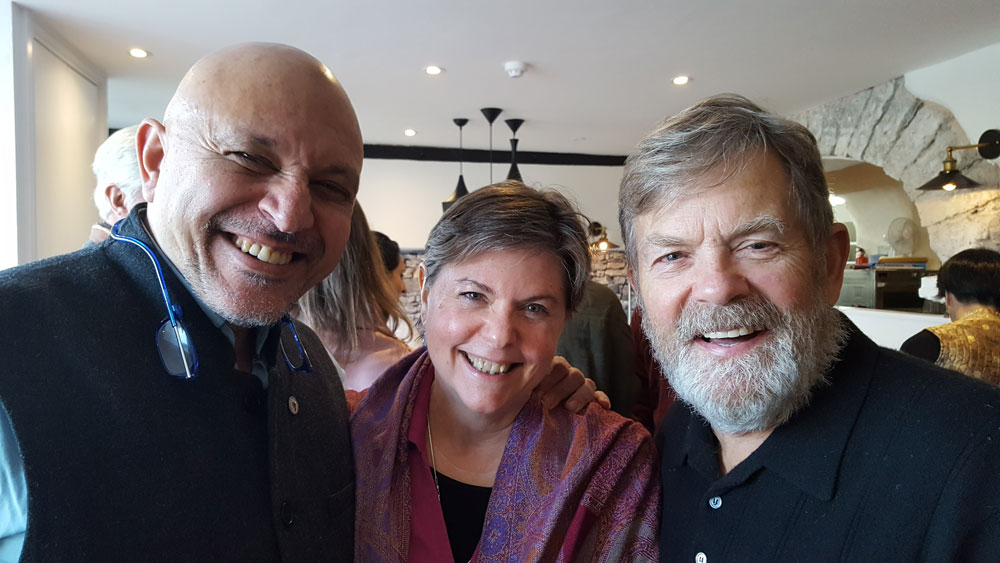

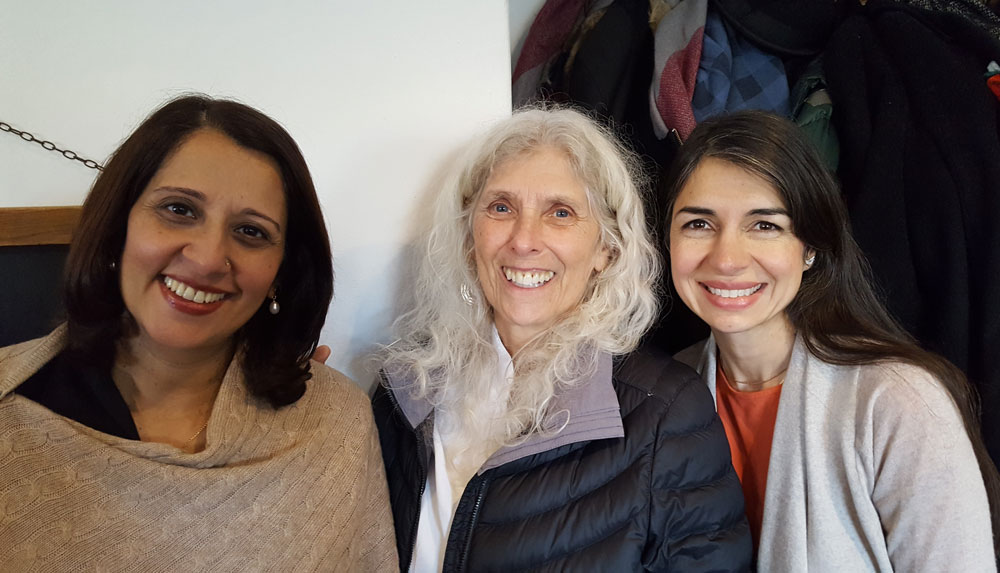
***
We’d love to hear from you – get in touch at eyeoftheheart@sufism.org
***
Find out how to support the work of Threshold Society.
***
Receive this newsletter by email: sign-up here.

